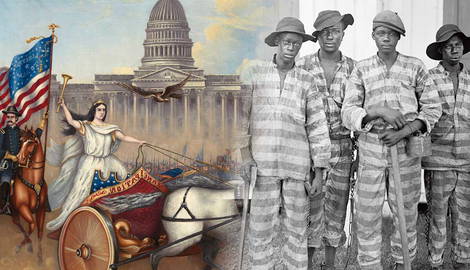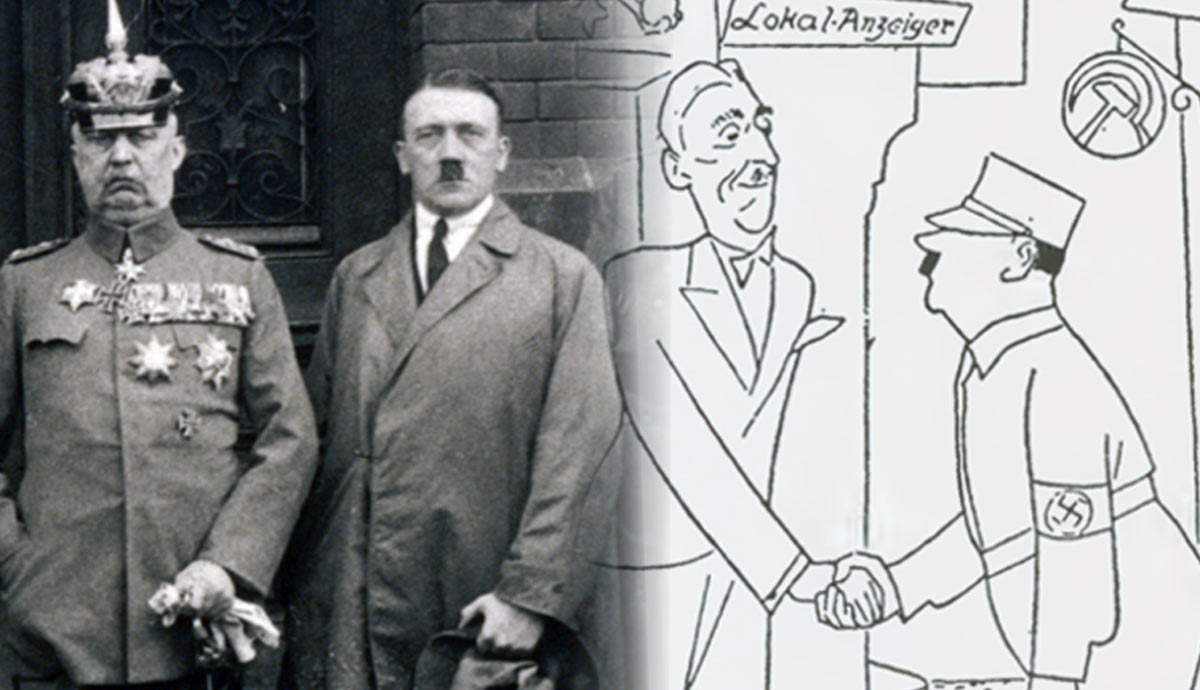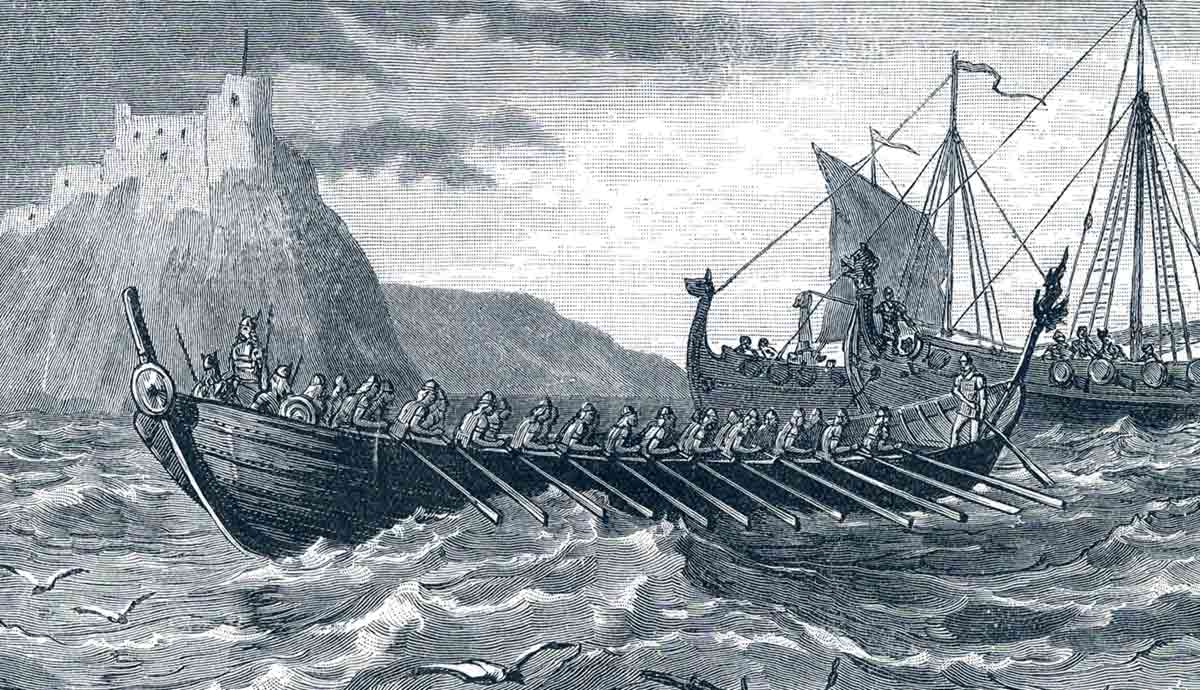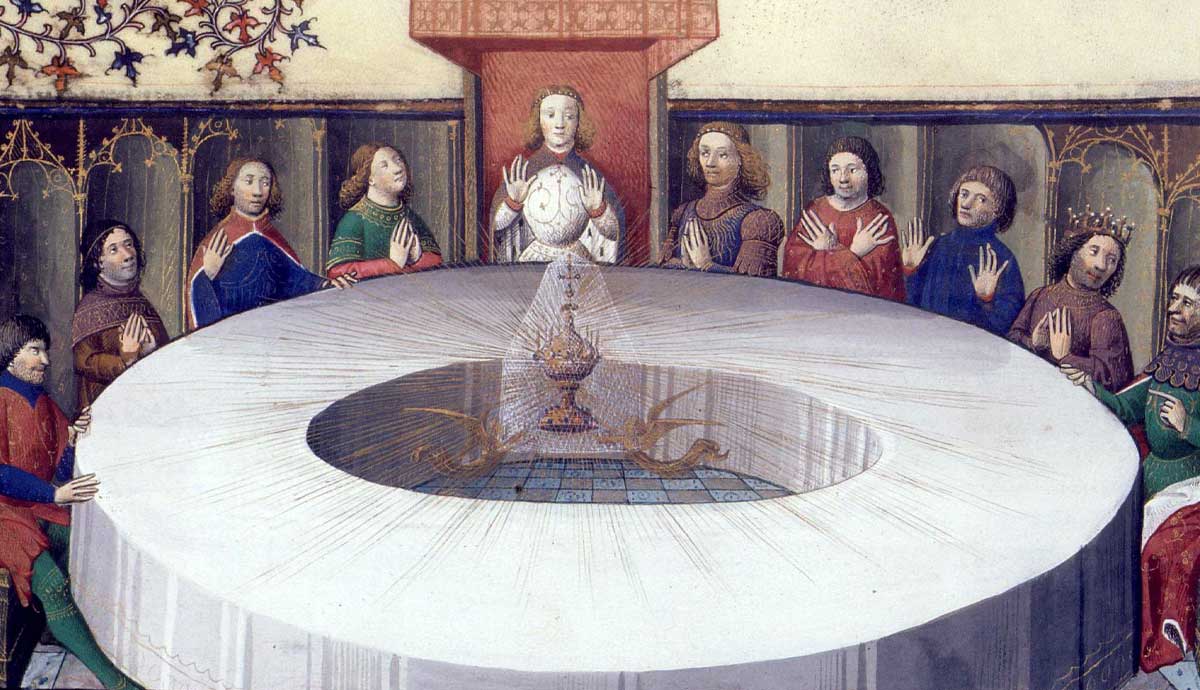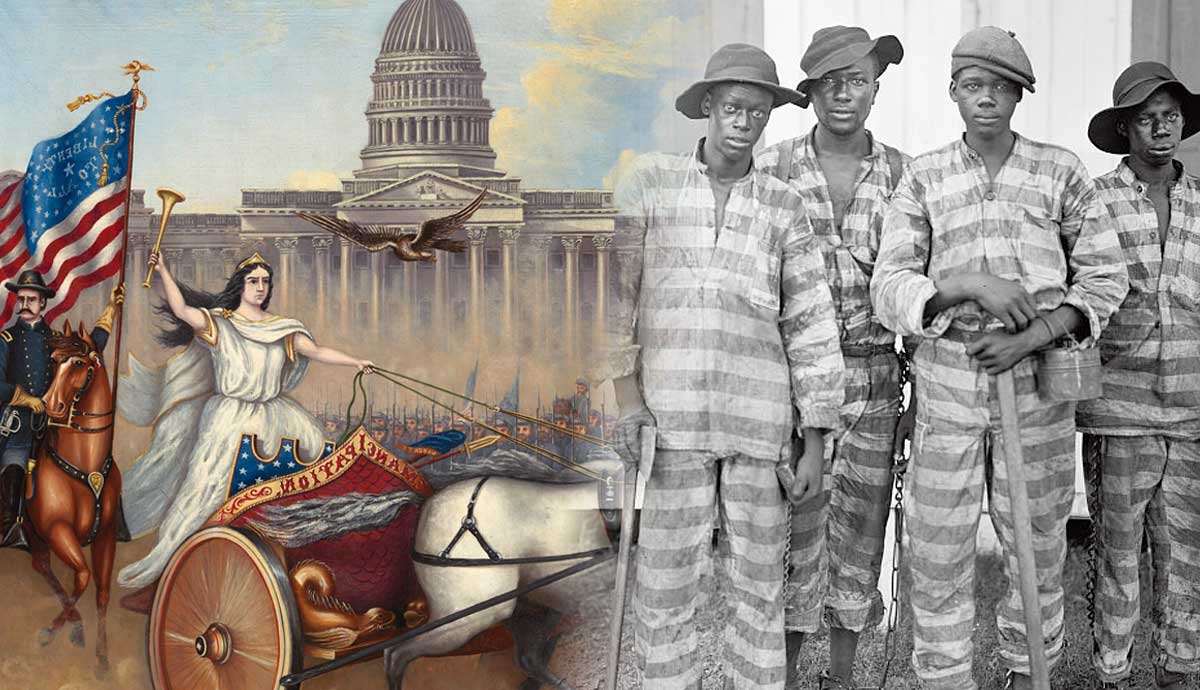
summary
-
The Thirteenth Amendment, ratified in 1865, formally abolished slavery in the United States. It also outlawed involuntary servitude. At the same time, the amendment continued to allow the government to use a person convicted of a crime for cheap labor.
-
About 4 million enslaved people in the US were freed as a result of the ratification of the Thirteenth Amendment. Additionally, the Fugitive Slave Clause and the Three-Fifths Compromise became invalid with the abolition of slavery.
-
After the ratification of the Thirteenth Amendment, many Southern states introduced “Black Codes,” laws limiting the freedom and rights of African Americans.
-
The Thirteenth Amendment is still relevant today, especially in the prison-industrial complex, where modern inmate-leasing programs use forced prison labor.
Often overshadowed by President Lincoln’s Emancipation Proclamation, the Thirteenth Amendment officially codified the abolition of slavery into United States law in 1865. The first of the Reconstruction Amendments, it outlawed people from being enslaved in the entire United States, with exceptions listed for those convicted of crimes. The Thirteenth Amendment had wide-reaching ramifications in the United States, some of which continue today.
Proposing & Crafting the Thirteenth Amendment

Many believe that the abolition of slavery in the United States occurred with President Abraham Lincoln’s Emancipation Proclamation. The proclamation, legal under the president’s war powers, was first issued in September 1862 and went into effect on January 1, 1863.
The Emancipation Proclamation, however, did not free all enslaved people throughout America. Lincoln was committed to rejoining the Union above all other aims during the Civil War, so the proclamation only applied to those enslaved in ten states, still a part of the Confederacy. Enslaved people in the border states still loyal to the Union were still legally considered property.
In his 1862 State of the Union address, Lincoln proposed three amendments to enforce the abolition of slavery further. The first of these would have required the emancipation of enslaved people by January 1, 1900. The status of slavery in the United States further remained in limbo when, still under war powers, President Lincoln issued the “Proclamation for Amnesty and Reconstruction.” This would have allowed Southern states to rejoin the Union if they immediately abolished slavery. Unsurprisingly, the Southern states did not take the deal, leaving lawmakers to devise another solution.

Several proposals for a new constitutional amendment were debated in Congress in the following years. The first bill proposed to abolish slavery in the entirety of the United States was introduced by Ohio Representative James Ashley in December 1863. Two other proposals followed, by Iowa and Missouri Representatives James Wilson and John Henderson. These proposals were submitted to Lyman Trumbull of Illinois, the chair of the Senate Judiciary Committee, who began merging the different proposals to craft an amendment.
While some radical Republicans pushed for a more expansive version of the amendment, on February 10, 1864, Trumbull and the Senate Judiciary Committee presented the following amendment:
“There shall be neither slavery nor involuntary servitude in the said territory, otherwise than in the punishment of crimes whereof the party shall have been duly convicted.”
Passage & Ratification of the Thirteenth Amendment

The Senate easily passed the amendment in April 1864 by a vote of 38 to 6. However, the amendment did not pass in the House of Representatives, with 93 in favor and 65 against, the two-thirds majority was not reached. The vote in the House of Representatives was along party lines, with Republicans for and Democrats against.
No Southern Democrats were represented in Congress at the time, so the argument against abolition was not one of moral and religious reasoning. Rather, Democrats argued their opposition based on states’ rights. Many, including Representative Chilton A. White, were staunchly against the amendment on the basis that it would violate the spirit of the Constitution, claiming it to be instead a “revolution” and would lead to full citizenship for Black Americans.
In their argument for abolition, Republicans framed it as a necessary step for progress on a national scale. They also painted slavery as uncivilized, with negative effects on white Americans as well. They claimed that forced labor drove down wages for white people and also caused repression of white abolitionists in the South.

Slavery began to seem politically untenable in the lead-up to the 1864 election, and several Democrats came out in support of the amendment. However, President Lincoln was also worried about the political impact of support for the amendment and remained outwardly neutral until his reelection in 1864. The passage of the Thirteenth Amendment then became Lincoln’s top legislative priority during his second term, saying in his 1864 State of the Union, “There is only a question of time as to when the proposed amendment will go to the States for their action. And as it is to so go, at all events, may we not agree that the sooner the better?”
With mounting public support, Lincoln instructed several of his political allies, including Secretary of State William H. Seward, to procure votes in the House of Representatives by any means necessary. They promised campaign contributions, government positions, and even outright bribes. Seward, in particular, had a large fund for bribes and was joined by representatives like James Ashley in lobbying Democrats for support.

Thaddeus Stevens, a radical Republican from Pennsylvania, later said, “The greatest measure of the nineteenth century was passed by corruption aided and abetted by the purest man in America,” though whether Lincoln was directly involved in bribing for votes is unknown.
Lincoln did, however, begin making direct emotional appeals to members of Congress, who were still in opposition, beginning in January 1865. This seemed to have helped sway at least a few, as on January 31, 1865, a vote was held in the House of Representatives, and the amendment passed by a narrow margin of 119 to 56. Congress erupted, with some members openly weeping in celebration of the passage. Black attendees of the vote cheered from the galleries.
There was no formal role for the president in the passage of constitutional amendments, but after passage, the amendment was sent to Lincoln for his signature. Below the signatures of the Speaker of the House and the President of the Senate, Lincoln added his signature and the word “approved” on February 1, 1865. The Thirteenth Amendment is still the only ratified amendment signed by a president in United States history.
While some states ratified the amendment immediately, others took more time. For states like Oregon and California, it was only a matter of days before they adopted the amendment. However, other states, like Texas, Delaware, Kentucky, and Mississippi, took longer to ratify. Texas ratified the Thirteenth Amendment in 1870, Delaware in 1901, Kentucky in 1976, and Mississippi in 1995. It didn’t matter that these states rejected the amendment, as the two-thirds majority of states made the Thirteenth Amendment the law of the land. However, ceremonially, Mississippi ratified the amendment in 1995.
Immediate Effects of the Thirteenth Amendment

The most obvious immediate effect of the passage of the Thirteenth Amendment was the immediate freeing of around 4 million enslaved people in the United States. Interestingly, the Fugitive Slave Clause in the Constitution remained in place but became invalid as slavery was now illegal.
Additionally, the Three-Fifths Compromise in the Constitution became moot. The Three-Fifths Compromise was used to count the population for seats in the House of Representatives and, consequently, the Electoral College and tax allocation. This compromise counted all “free persons” and counted three-fifths of “other persons,” which referred to enslaved people; Native Americans were untaxed.
This meant that while a freed person now counted as a full person, it also ensured that there were many more representative seats in the House of Representatives in formerly Confederate states. Republicans were worried about this from early in the process of proposing the amendment, as it would give Southern states more power in Congress at a time when the South was dominated by Democrats. Republicans, however, attempted to mitigate this by attracting newly enfranchised Black voters.
Though slavery was officially ended within the United States, it continued under the jurisdiction of Native American tribal land beyond ratification. In 1866, however, the federal government reached new treaties with the Cherokee, Chickasaw, Muscogee (Creek), Choctaw, and Seminole tribes, wherein they agreed to end slavery.
The Thirteenth Amendment also prohibited involuntary servitude, a catchall that encompassed several forms of labor where someone is forced to work by coercion, whether physical or legal. An example of this ban was the system of peonage, a system of labor where someone is forced to work to pay off a debt. Though this ban was in place, it was not enforced until 1867 with the Anti-Peonage Act.

In response to these effects, many Southern states quickly passed laws known as “Black Codes” to regulate Black behavior in society. The Thirteenth Amendment did allow for forced labor in certain circumstances. While military duty and jury duty are two instances where this applies, it also applies to criminals.
“Black Codes” established a set of laws that supported the deeply racist and economically ruined South. Mississippi was the first to enact such laws in 1865, with a law titled “An Act to confer Civil Rights on Freedmen.” This law stipulated that Black workers must contract themselves to white farmers or face vagrancy charges and sentences for forced labor. It was a lose-lose situation for many Black Mississippians, whose financial situation, much like other Black Southerners, had not been improved by emancipation.
South Carolina also enacted a set of laws that regulated behavior and codified separate laws (and thus punishments) for anyone who had more than one great-grandparent who was Black. Black people could only work as servants or farmers and could not own land. This fit nicely with the Southern plan to rebuild their economy through loopholes in the amendment that allowed for slavery.
Long-Term Enforcement of the Thirteenth Amendment

The second section of the Thirteenth Amendment allows Congress the power to enforce the ban on slavery by passing appropriate legislation. This is the case of the Anti-Peonage Act of 1867, upheld by the Supreme Court as unconstitutional in 1911, or the federal law 18 U.S.C. § 1592, which made taking someone’s passport or official documents to hold someone as a slave illegal. According to the Constitution Center, the Supreme Court held that the second section also “allows Congress to pass laws to eradicate the ‘badges and incidents of slavery.’”
The Supreme Court never fully specified what counts as a “badge or incidence” of slavery but ruled in 1883 that “racial discrimination in private inns, theaters, and public transportation did not qualify as a badge or incident of slavery.” In the 1960s and 70s, though, they ruled that “racial discrimination by private housing developers and private schools is among the badges and incidents of slavery that Congress may outlaw under Section Two of the Thirteenth Amendment.”
The most recent enforcement of the Thirteenth Amendment is when Congress determined that section two provides a basis for part of the Hate Crimes Prevention Act of 2009 and the Trafficking Victims Protection Act. Though Congress defines these as partially indicative of the “badges and incidents of slavery,” the Supreme Court has yet to examine these laws.

The Thirteenth Amendment has rarely been invoked in the United States, but it does deal with issues of modern America as well. The prison-industrial complex in the United States is an example of the Thirteenth Amendment being used to excuse slavery in the modern age. Prisoners today, like the chain gangs of the past, are put to work. Many work for the state, producing goods like license plates under the guise of preparing inmates with “meaningful employment skills.”
The echoes of Black Codes as a result of the passage of the Thirteenth Amendment can also be heard throughout the United States with the modern inmate-leasing programs. Several major American brands use forced prison labor, with inmates earning only a few cents per hour or nothing at all in a fully legal way.
The Thirteenth Amendment was necessary to abolish slavery in perpetuity in the United States, but its language is still questionable, as states and advocacy groups have begun to call for a revision to the clause permitting forced labor on those convicted of crimes. The Thirteenth Amendment was the first legislative movement toward Civil Rights in the United States. Though it, like the country itself, is flawed, it was a historic and emblematic commitment to free Black Americans so that they would never again be enslaved.
FAQs
How successful was the Thirteenth Amendment?
While the Thirteenth Amendment abolished slavery, African Americans continued to face challenges in their fight to achieve true equality. Under measures like the “Black Codes,” Black Americans were often forced into labor arrangements that resembled slavery. Nevertheless, the Thirteenth Amendment was a landmark achievement in the fight for equality in the United States.
How did the American South react to the Thirteenth Amendment?
Many Southern states resisted and undermined the effects of the Thirteenth Amendment by enacting laws and regulations that perpetuated systems of oppression. In particular, the “Black Codes” and the system of convict leasing allowed Southern states to trap many Black Americans in a cycle of poverty and forced labor.
What is the loophole in the Thirteenth Amendment?
Known as the “exception clause,” the loophole in the Thirteenth Amendment allowed forced labor as punishment for a crime. After 1865, Southern states used this clause to justify their convict leasing system. Today, civil rights activists call for the repeal of the “exception clause,” arguing that it allows for a form of modern-day slavery, especially in the prison-industrial complex.
